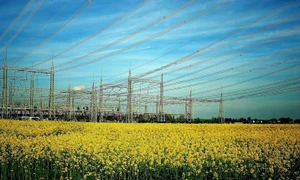
Breakthrough climate laws that target greenhouse gas emissions were passed by the Australian Parliament on Thursday.
Prime Minister Anthony Albanese said Australia was living up to its obligations after "10 years of denial and delay and inaction."
According to University of New South Wales sustainability expert Tommy Wiedmann, "it's the first-time greenhouse gas emissions reduction has been written into Australian law."
The new legislation, which affects coal, gas and oil industries, will come into effect in July and will likely put at least a temporary stop to what Australians have called the "climate wars."
What is the new law?
Called the "Safeguard Mechanism" reform, the legislation is key to the Labor government's pledge to cut emissions by 43% by 2030 compared to 2005 emissions levels. Australia ranks as one of the world's biggest carbon emitters per capita.
The new laws target 215 major industrial facilities. Each produces more than 100,000 tons of greenhouse gases annually.
The new laws form the basis of Australia's pledge to reach net zero emissions by 2050.
The government estimates projects will stop 200 million tons of carbon from being released into the atmosphere over the next decade.
A deal reached by Labor and the Greens Party secured support for the legislation through the Senate, the upper house of Parliament.
"For the first time ever in law, oil and gas corporations have been compelled to cut their emissions," said Greens Leader Adam Bandt.
"Today is an historic day for the country to ensure our economy can take advantage of the opportunities of decarbonization and meet our ambitious climate targets," Energy Minister Chris Bowen said in a statement.
Large polluters hit hard
The new laws target 215 major industrial facilities. Each produces more than 100,000 tons of greenhouse gases annually.
Aluminum smelters, coal mines, oil refineries and other large polluters will be forced to cut their emissions by 4.9% each year or pay for carbon credits to reach the target.
Australia's mining industry has cautioned that the financial burden of compliance could lead to massive job cuts.
"If we are not careful, some facilities in Australia will close," the Minerals Council of Australia said before the laws passed.
"Not only would that damage our economy and slash tens of thousands of regional jobs and billions in investment, it also would push the emissions reduction burden onto other nations that are less able or less willing to decarbonize," he added.
The new law requires all new gas projects in the Beetaloo Basin to have net zero carbon emissions and new gas fields supplying existing liquefied natural gas (LNG) plants to have net zero reservoir emissions, imposing new costs.























